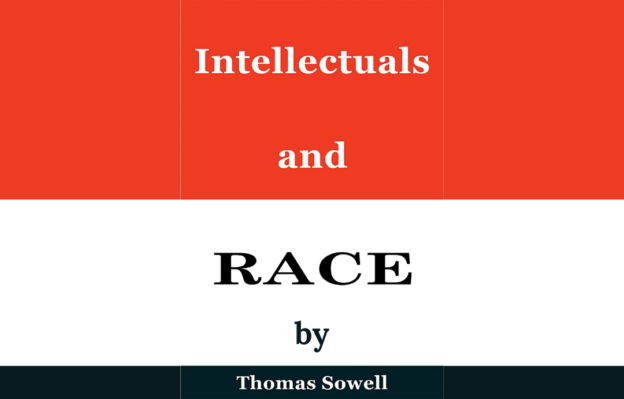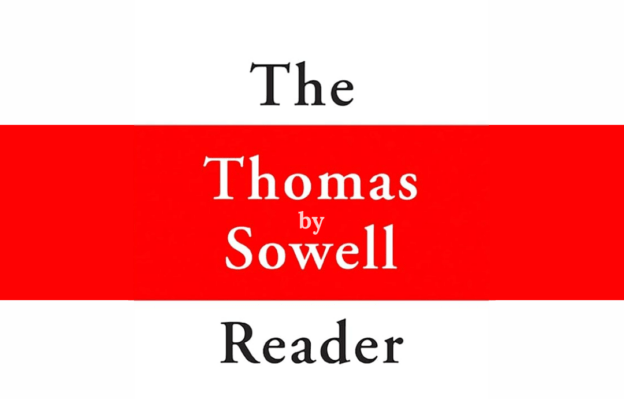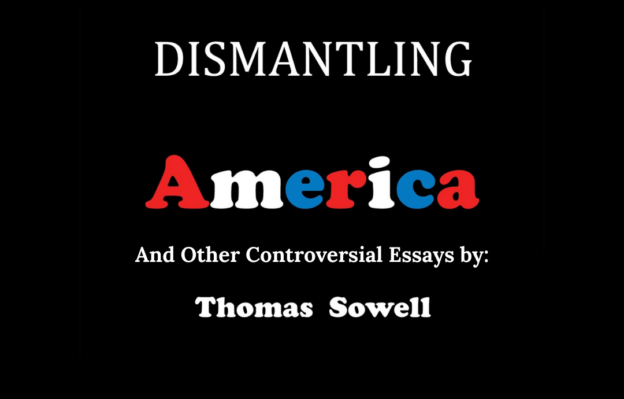A critical analysis of “Intellectuals and Race” by Thomas Sowell.
Continue reading

A critical analysis of “Intellectuals and Race” by Thomas Sowell.
Continue reading
A critical analysis of “The Thomas Sowell Reader” by Thomas Sowell.
Continue reading
A critical analysis of “Dismantling America: And Other Controversial Essays” by Thomas Sowell.
Continue reading“Intellectuals and Society” by Thomas Sowell, a critical analysis.
Continue readingA critical analysis of “Economic Facts and Fallacies” by Thomas Sowell.
Continue readingMore in my series of critical analysis of the works of Thomas Sowell, with “Applied Economics: Thinking Beyond Stage One” by Thomas Sowell.
Continue readingA critical analysis of “Controversial Essays” by Thomas Sowell.
Continue readingA critical analysis of Thomas Sowell’s “A Personal Odyssey”.
Continue readingA critical analysis of “The Quest for Cosmic Justice” by Thomas Sowell…
Continue reading“Conquests and Cultures: An International History” (1998) is a continuation of Thomas Sowell’s large-scale examination of global patterns of cultural development. In this volume, Sowell investigates how conquests have shaped and been shaped by the cultures of both the conquerors and the conquered. Through an in-depth analysis, he offers insights into the dynamics of cultural evolution, diffusion, and clash.
Continue reading“Migrations and Cultures: A World View” (1996) by Thomas Sowell offers an extensive examination of the migratory patterns of various ethnic groups throughout history and the subsequent cultural and economic impacts these migrations have had on both the migrating populations and their host countries. Sowell employs a global perspective, investigating the experiences of different groups across continents and centuries.
Continue reading“The Vision of the Anointed: Self-congratulation as a Basis for Social Policy” (1995) by Thomas Sowell provides a critical examination of what he identifies as the prevailing intellectual elite’s approach to social policy. Sowell critiques the self-appointed “anointed” visionaries who believe their advanced insights should guide societal policies, often to the detriment of the very groups they aim to help.
Continue reading“A Conflict of Visions: Ideological Origins of Political Struggles” (1987) by Thomas Sowell offers a profound exploration into the foundational belief systems that underpin political ideologies and the consequential policy debates that arise from them. Sowell identifies two primary visions, the “constrained” and the “unconstrained”, that serve as the bedrock of these ideological divergences.
Continue reading“Civil Rights: Rhetoric or Reality?” (1984) by Thomas Sowell dives deep into the core issues surrounding the civil rights movement and policies in the United States. Sowell, known for his empirical and contrarian approach to controversial subjects, attempts to sift through the rhetoric surrounding civil rights to discern the true outcomes and effects of policies meant to advance racial equality.
Continue reading“The Economics and Politics of Race” (1983) by Thomas Sowell is a rigorous exploration of the intersection between race, economics, and political systems. In this work, Sowell seeks to debunk myths surrounding racial and ethnic groups, their economic outcomes, and the policies meant to aid them. The book touches upon various groups globally, offering a comparative perspective on their socio-economic trajectories.
Continue reading“Markets and Minorities” (1981) by Thomas Sowell is an intricate examination of the economic and social outcomes of minority groups within market economies. In this work, Sowell dives into the heart of debates around discrimination, systemic barriers, and economic outcomes. As with much of his oeuvre, Sowell employs a data-driven approach, using empirical evidence to support his claims and challenge conventional wisdom.
Continue reading“Ethnic America: A History” (1981) by Thomas Sowell is an expansive exploration of the various ethnic groups that have come to the United States and the intricate tapestry of experiences, challenges, and successes they have encountered. Sowell, known for his meticulous research and data-driven arguments, offers a comprehensive look at the histories, cultures, and socio-economic outcomes of these groups, examining the factors behind their diverse trajectories.
Continue reading“Race and Economics” (1975) by Thomas Sowell is a seminal work that delves into the complex interplay between racial dynamics and economic outcomes. Known for his empirical, data-driven approach, Sowell in this book examines the economic status of various racial and ethnic groups, not just within the United States but also globally. He endeavours to dissect the reasons behind economic disparities, challenging conventional wisdom and popular narratives along the way.
Continue reading“Classical Economics Reconsidered” (1974) by Thomas Sowell is a thorough exploration of classical economic thought, providing readers with a deeper understanding of its foundational theories, practitioners, and its relevance in the modern economic landscape. Sowell, known for his clear exposition and rigorous analytical approach, critically examines the work of classical economists, debunking some misconceptions and placing their ideas within a broader historical and intellectual context.
Continue reading“Black Education: Myths and Tragedies” by Thomas Sowell, published in 1972, is a critical exploration of the challenges faced by Black students in the American education system. Drawing on empirical evidence and historical accounts, Sowell aims to dissect some of the commonly held myths regarding Black education, as well as the consequences that arise from these misconceptions.
Continue reading